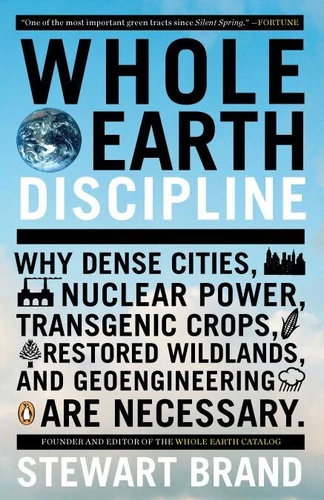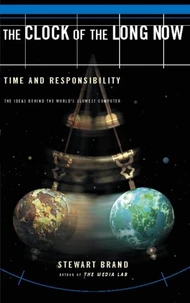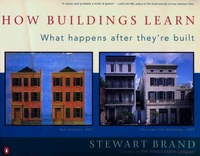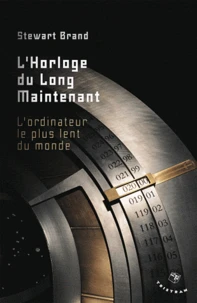Whole Earth Discipline. Why Dense Cities, Nuclear Power, Transgenic Crops, RestoredWildlands, and Geoengineering Are Necessary
Par :Formats :
Disponible dans votre compte client Decitre ou Furet du Nord dès validation de votre commande. Le format ePub protégé est :
- Compatible avec une lecture sur My Vivlio (smartphone, tablette, ordinateur)
- Compatible avec une lecture sur liseuses Vivlio
- Pour les liseuses autres que Vivlio, vous devez utiliser le logiciel Adobe Digital Edition. Non compatible avec la lecture sur les liseuses Kindle, Remarkable et Sony
- Non compatible avec un achat hors France métropolitaine
 , qui est-ce ?
, qui est-ce ?Notre partenaire de plateforme de lecture numérique où vous retrouverez l'ensemble de vos ebooks gratuitement
Pour en savoir plus sur nos ebooks, consultez notre aide en ligne ici
- Nombre de pages352
- FormatePub
- ISBN978-1-101-48341-1
- EAN9781101483411
- Date de parution28/09/2010
- Protection num.Adobe DRM
- Taille599 Ko
- Infos supplémentairesepub
- ÉditeurPenguin Books
Résumé
An icon of the environmental movement outlines a provocative approach for reclaiming our planet According to Stewart Brand, a lifelong environmentalist who sees everything in terms of solvable design problems, three profound transformations are under way on Earth right now. Climate change is real and is pushing us toward managing the planet as a whole. Urbanization?half the world?s population now lives in cities, and eighty percent will by midcentury?is altering humanity?s land impact and wealth.
And biotechnology is becoming the world?s dominant engineering tool. In light of these changes, Brand suggests that environmentalists are going to have to reverse some longheld opinions and embrace tools that they have traditionally distrusted. Only a radical rethinking of traditional green pieties will allow us to forestall the cataclysmic deterioration of the earth?s resources. Whole Earth Discipline shatters a number of myths and presents counterintuitive observations on why cities are actually greener than countryside, how nuclear power is the future of energy, and why genetic engineering is the key to crop and land management.
With a combination of scientific rigor and passionate advocacy, Brand shows us exactly where the sources of our dilemmas lie and offers a bold and inventive set of policies and solutions for creating a more sustainable society. In the end, says Brand, the environmental movement must become newly responsive to fast-moving science and take up the tools and discipline of engineering. We have to learn how to manage the planet?s global-scale natural infrastructure with as light a touch as possible and as much intervention as necessary.
And biotechnology is becoming the world?s dominant engineering tool. In light of these changes, Brand suggests that environmentalists are going to have to reverse some longheld opinions and embrace tools that they have traditionally distrusted. Only a radical rethinking of traditional green pieties will allow us to forestall the cataclysmic deterioration of the earth?s resources. Whole Earth Discipline shatters a number of myths and presents counterintuitive observations on why cities are actually greener than countryside, how nuclear power is the future of energy, and why genetic engineering is the key to crop and land management.
With a combination of scientific rigor and passionate advocacy, Brand shows us exactly where the sources of our dilemmas lie and offers a bold and inventive set of policies and solutions for creating a more sustainable society. In the end, says Brand, the environmental movement must become newly responsive to fast-moving science and take up the tools and discipline of engineering. We have to learn how to manage the planet?s global-scale natural infrastructure with as light a touch as possible and as much intervention as necessary.
An icon of the environmental movement outlines a provocative approach for reclaiming our planet According to Stewart Brand, a lifelong environmentalist who sees everything in terms of solvable design problems, three profound transformations are under way on Earth right now. Climate change is real and is pushing us toward managing the planet as a whole. Urbanization?half the world?s population now lives in cities, and eighty percent will by midcentury?is altering humanity?s land impact and wealth.
And biotechnology is becoming the world?s dominant engineering tool. In light of these changes, Brand suggests that environmentalists are going to have to reverse some longheld opinions and embrace tools that they have traditionally distrusted. Only a radical rethinking of traditional green pieties will allow us to forestall the cataclysmic deterioration of the earth?s resources. Whole Earth Discipline shatters a number of myths and presents counterintuitive observations on why cities are actually greener than countryside, how nuclear power is the future of energy, and why genetic engineering is the key to crop and land management.
With a combination of scientific rigor and passionate advocacy, Brand shows us exactly where the sources of our dilemmas lie and offers a bold and inventive set of policies and solutions for creating a more sustainable society. In the end, says Brand, the environmental movement must become newly responsive to fast-moving science and take up the tools and discipline of engineering. We have to learn how to manage the planet?s global-scale natural infrastructure with as light a touch as possible and as much intervention as necessary.
And biotechnology is becoming the world?s dominant engineering tool. In light of these changes, Brand suggests that environmentalists are going to have to reverse some longheld opinions and embrace tools that they have traditionally distrusted. Only a radical rethinking of traditional green pieties will allow us to forestall the cataclysmic deterioration of the earth?s resources. Whole Earth Discipline shatters a number of myths and presents counterintuitive observations on why cities are actually greener than countryside, how nuclear power is the future of energy, and why genetic engineering is the key to crop and land management.
With a combination of scientific rigor and passionate advocacy, Brand shows us exactly where the sources of our dilemmas lie and offers a bold and inventive set of policies and solutions for creating a more sustainable society. In the end, says Brand, the environmental movement must become newly responsive to fast-moving science and take up the tools and discipline of engineering. We have to learn how to manage the planet?s global-scale natural infrastructure with as light a touch as possible and as much intervention as necessary.






